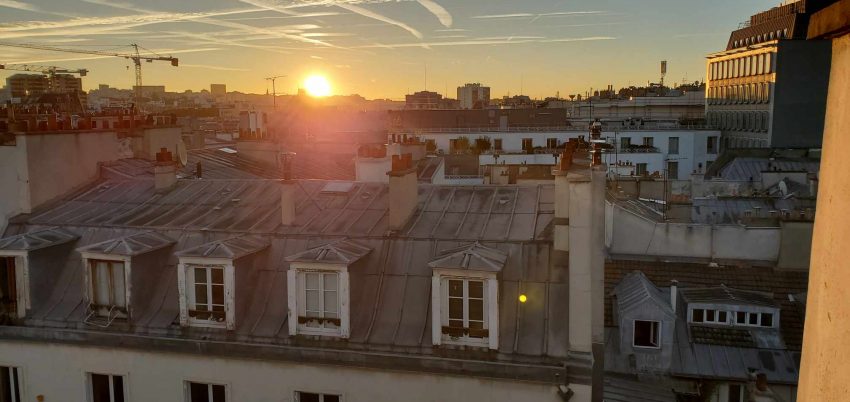The concept of home basing is one we learned from travel guru Rick Steves. It involves staying in a central location for a longer period of time instead of moving to a new destination every couple of days. This works best in a large city, but is also a great option in a smaller city in a renowned region. You can take your time exploring the area through day trips while being more immersed in your home base.
It is designed to save travel time and money from the cost of flights, trains, buses and rental cars. That money can be used to arrange private walking tours within the city – food tours are huge right now – and bus tours to nearby sites.
It can also be very budget conscious if you use Airbnb or Bed & Breakfast accommodations that include some of your meals. Having a kitchenette (such as a fridge, stove and/or microwave) allows you to purchase what is local and in season and plan your own meals and picnics. Even just making coffee in the room can save hundreds in the long run.
We have found as well, after a number of years using the home base philosophy, that our time is less hectic and more enjoyable. We really get to appreciate the culture of the area and engage more with the locals. We stopped trying to fit everything we wanted to do into a day or two (kind of like what you do at a port of call on a cruise) and really slowed down the pace.
It does require some pre-planning and research to find the right home base from which to explore. Here our our tips for what you need to look for in order to decide if this will work for you.
- Decide first what general region you want to explore such as Tuscany in Italy, Provence in the south of France, or all of a smaller country like Belgium. This will be your hardest decision because if you are like me you want to do it all. We each made a list of our priorities and melded them together for a final list. Then we started at the top.
- Review the transportation options for the region. Can you get a direct flight or is a transfer required. Perhaps it will require a combination flight and train to meet your budget. Once there how do you plan to get around? A lot of the great cities of Europe have easy to use and affordable public transportation; subways, bus or tram systems or reliable taxi service. If you are not familiar with any of those take some time to learn how to read the maps and plan out your routes ahead of time. Renting a car is also an option but it can be very expensive. Add to that the fact that your insurance does not cover you in Europe so you will need to purchase additional coverage. Last but certainly not least, is it a walkable city? This is your most economical mode of transportation.
- Make a list of what you want to see and do while in the city that will be your home base. The list of museums, galleries, iconic sites and activities will direct your day. How much time will you need to explore each one? A good guidebook usually includes this information. Leave time as well to sleep in if you want to, explore random parts of the city on your own and people watching from a sidewalk cafe. This process will also help you realize how many days you have available to spend outside of the city.
- Do a google search of the top tours outside of your home base. Trip Advisor, Viator and Expedia are my go to search engines but there are many more. Find out what’s popular, what each one costs and for how long. Check to see where the drop off and pick up points are for your favourites. Are they easy to reach from your accommodations or will you need to take a taxi? This can make a huge impact on which ones you book or where you stay. Spending time traveling from a place far from the centre of town will eat into your day.
- Once you have a location search for local markets, grocery stores, and restaurants to use during your stay. Many restaurants have menus to view online so you can compare pricing and selection. Remember that not all of the available places will show up on google maps.
- Check for laundry facilities. If you are staying longer and want to avoid extra luggage that has to be collected at the airport and lugged around, be prepared to do some laundry. Many hotels and Airbnbs have laundry facilities such as washer and dryers (or drying racks), as do some hotels. Just in case bring along laundry detergent so you can wash a few things out in the sink.
- Before you confirm and pay for any of this, read the reviews! Some should be taken with a grain of salt but the consistent praise, or concerns, are worth paying attention to. Be mindful of safety, noise, neighbourhood, and such for your accommodation. Watch for timing and reliability and good guides for your tours. Air conditioning and stairs are two deal makers/breakers for us. It isn’t foolproof but it helps.
The more you home base the better you get at it. Over time you will better define what it is that you must have or just prefer. For us the independence to define our travels and the freedom to enjoy each day is what make home basing our go to travel philosophy.
